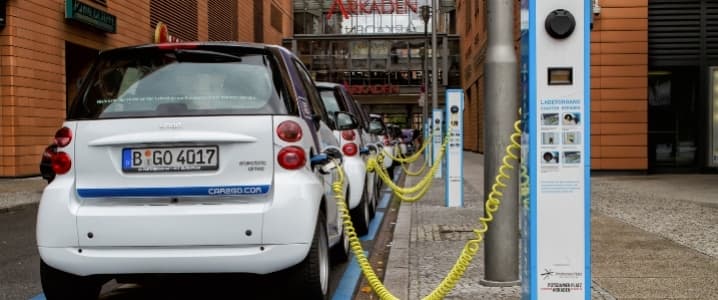96 percent of new vehicle sales in 2016 featured combustion engines
The implementation of electric vehicles and ride-sharing may have long-term effects on oil demand, but the speed at which changes to the vehicle fleet takes place are likely to ensure that it happens at a slow pace, according to a report by IHS Markit.
While IHS and many other prevailing long-term global energy forecasts expect oil demand to continue to grow over the next two decades, the potential for disruptive changes to transportation—a sector that accounted for half of the 96 MMBOPD of oil consumed globally in 2016—have added a level of uncertainty, according to IHS Canadian Oil Sands Dialogue report.
Transportation sector changes: peak oil demand, or just a beginning?
The report says that the potential proliferation of increasingly stringent vehicle ownership and use policies, changes in consumer behavior, new technologies and the pace of economic growth, as well as the impacts of new mobility models such as ride hailing services and autonomous vehicles are key sources of uncertainties facing global oil demand. The combination of these factors could foreseeably lead to a peak in oil demand or, alternatively, lead to it reaching new heights.
Regardless of how these factors play out, the gradual nature of transitions and the long life of the existing on-road fleet means that the impact on oil demand will likely be at a measured pace, the report says. Even in 2016, 96 percent of all new vehicle sales featured a combustion engine. IHS Markit estimates the average vehicle life globally to be about 15 years, which means that the impact of new vehicle technologies is expected to take time to materially affect the vehicle fleet and overall fuel demand.
“When we look at the future of the car and the impact of key factors such as electric vehicles sales, we see the slow turnover rate of the global vehicle fleet muting the effect of new technologies on global oil demand,” said Kevin Birn, director for IHS Energy who leads the Oil Sands Dialogue. “However, the future of the car—and the sources of energy that propel them—is certainly not predetermined and the potential exists for the future to surprise—up or down.” Related: Will The Climate Crisis Spread Financial Chaos In Oil and Gas?
IHS believes that oil sands will continue to play a key role in meeting future oil supply. Since production from oil sands facilities does not decline, future investment into projects results in growth, the report says.
“Looking ahead to future automotive demand for refined products and, in turn demand for crude oil, it is easy to fixate on one or two factors. But this misses the larger picture,” said Tiffany Groode, IHS Energy senior director.
“More likely, the future for transportation will come from a variety of variables, from economic activity and government policy, to shifting consumer preferences. Navigating this uncertainty and understanding how numerous variables will interact and influence one another will be pivotal.”
By Oil & Gas 360
More Top Reads From Oilprice.com:
- Asian LNG Sees Its Biggest Monthly Rise In 4 Years
- 10 Energy Surprises In 2017
- The Shale Oil Threat Will Not Go Away



















The only thing we know for certain is that oil is a finite resource on which we have allowed ourselves to become dangerously dependent. If we wait to electrify most transportation until oil begins to decline in supply, avoiding a collapse of our industrial civilization will be virtually impossible. We don't have a lot of time left.
By 2030 all new vehicles will be electric. According the technology cost curves and improvements. 200 mile range is the game changer. It starts in 2017 with the model 3, bolt, Leaf etc...can't wait.